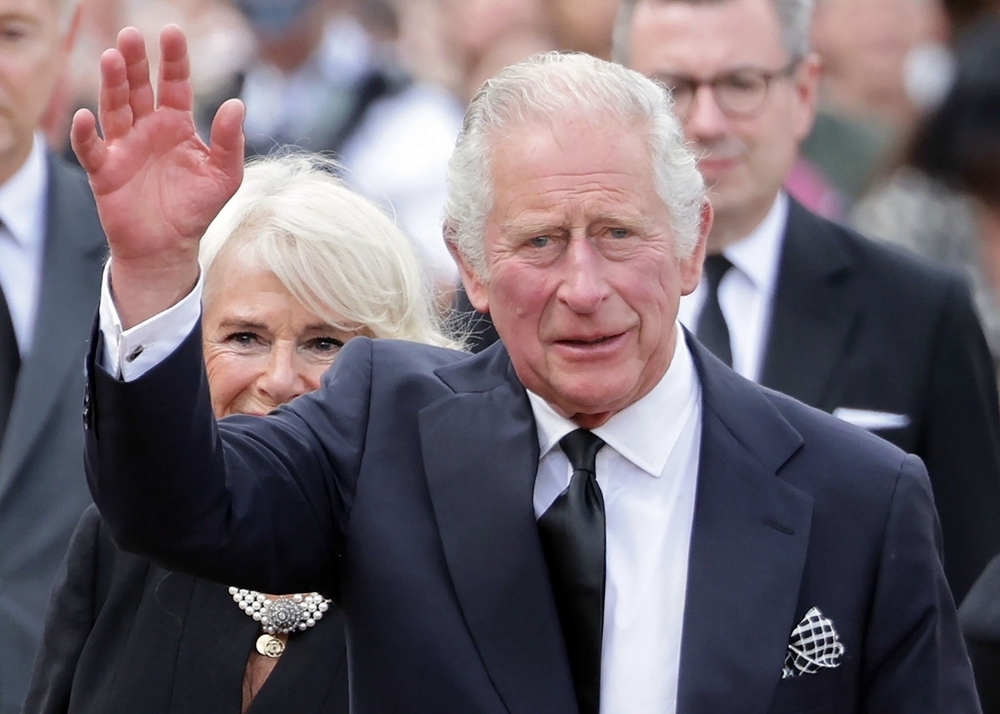Language used for the coronation of King Charles III
5th May 2023
On Saturday, 6th of May, the UK will experience its first coronation (a ceremony to make someone a King or Queen) since 1953, when Queen Elizabeth II began her reign (the length of time she was a Queen).

People from all over the world have travelled to London to experience this special event. Over the last few days, the Royal superfans armed with tents and sleeping bags have been lining the procession route by Buckingham Palace with less than 24 hours until King Charles III’s procession (lines of people walking in the same direction) to Westminster Abbey.
More than 400,000 people will be awarded a coronation medal, including everyone actively contributing to and supporting the event on Saturday: police officers, choristers, military personnel and ambulance workers.
For the first time traditional languages; including Irish, Scots Gaelic and Welsh, will all be spoken along with English at Westminster Abbey for the new King of England’s coronation.
A spokesperson for the Archbishop of Canterbury has confirmed that the ancient traditional hymn, ‘Veni Creator’ (Come Creator Spirit), will be sung after the sermon on 6th of May.
You can find more details on the event online.
In this article, we will look at some of the vocabulary connected with that event.
The UK is a monarchy (a country with a King or Queen). The King or Queen is known as the monarch or the sovereign. The family of the monarch is known as the Royal Family.
The prince is a son of monarch and princess is a daughter of the monarch.
The position of monarch is hereditary, which means that it is passed down through the family to the eldest son or daughter. Prince William is the eldest son of King Charles III and first in line to the throne (he will become King when King Charles III dies).
The coronation event is a state occasion meaning important members of the British government and the Royal Family will be in attendance and the event will be paid for by the British government.
Charles will become a King of fourteen Commonwealth countries (countries still under British rule), so their leaders, as well as many other heads of state (leaders of countries), will attend.
The coronation will also be memorialised with a bank holiday (an official holiday when most businesses including banks are closed for the day).
Many British people will be celebrating the event with their own street parties (a party that is held outdoors in the street, often organised by the residents). Houses are typically decorated with union jack bunting (rows of brightly coloured small flags, in the colours of the UK flag: red, white and blue).
The coronation ceremony will be held at Westminster Abbey (a royal church in the centre of London) and will be performed by the Archbishop of Canterbury (the Chief Bishop).
Even though Charles acceded to the throne (became the King) at the moment of his mother’s death, the coronation is a symbolic ceremony, when he will not only be crowned (have a crown put on her head) the new King of England, but also when he takes on the role as head of the Church of England.
The day is full of pageantry (impressive and colourful ceremonies). After the coronation, King Charles III will travel back to Buckingham Palace in the gold royal horse-drawn carriage, pulled by eight horses. The King will be dressed in layers of impressive robes, including a shimmering gold-sleeved coat called the Supertunica for the crowning (a robe made for George V in 1911, and worn in every coronation since, including that of Elizabeth II). On top of the Supertunica will be a floor-length cloak named the Imperial Mantle, or Robe Royal, which was made for George IV in 1821.
It has also been confirmed that the national anthem (a country’s official song) will be played before all Premier League matches this weekend.
